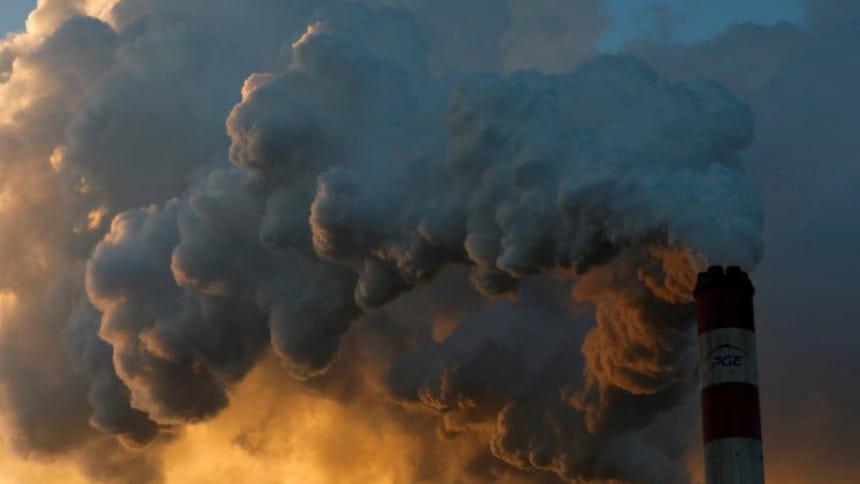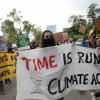Climate Catastrophe on the Horizon

Unless you've been living under a rock or are a conservative politician, you might have already chanced upon this report in either your social media newsfeed or in the newspaper. If the "Code Red" warning issued by the experts on climate change wasn't clear enough, I am here to give you a more succinct version of what's going on.
The IPCC report is titled "The Physical Science Basis" because, for the first time, experts have used 'strong language' to indicate two key takeaways. Firstly, that climate change is undoubtedly caused as a by-product of human greenhouse gas emissions. And secondly, that some of the damage we have already caused will be irreversible for centuries or millennia.
In the previous IPCC report from 2014, we had already been warned about rising global temperatures which correlated with the start of the industrial era. It was predicted that if this increase in temperature crossed the 1.5° C threshold, we are going to experience quite a lot of problems. From rising sea levels to more frequent natural disasters like wildfires, tornadoes, and cyclones.
In case you're confused about why a 1.5° C rise in temperature would cause such effects, then I'd recommend reading further into it. To sum it up, this rise in temperature is with respect to climate. And small changes in the climate can cause large-scale effects on the weather. That is exactly why every year we see reports about record high temperatures in the summer. Hence, scientists talk about the 1.5° C mark as a tipping point after which things progressively get a lot worse.

This is in particular why this sixth IPCC report is so concerning. Scientists have informed us that reaching the 1.5° C mark is inevitable, and our only target should be to ensure we stay as far below the next 2° C threshold as possible. The situation is even worse when you realise that natural environments which help absorb our carbon emissions — such as the Amazon Rainforest — are slowly being destroyed.
Normally, this is the part where I would tell my readers to not panic because there is probably a feasible solution to the problem. However, the term 'feasible' has been thrown out the window. Experts have currently provided us with two options that can prevent us from getting too close to the 2° C mark.
The first would require our carbon emissions to be cut in half by 2050, and for the world to become carbon neutral by 2075 to stay below 2° C. The other option would be to take our carbon emissions to zero by 2050, which would keep us close to the 1.5° C mark.
The issue of feasibility isn't due to a lack of alternatives. Many organisations such as the International Energy Agency (IEA), and The Solutions Project have already set the target for net-zero emissions by 2050. The IEA's report titled Net Zero by 2050: A Roadmap for the Global Energy Sector highlights exactly what countries must do to ensure the titular target. The problem, however, is and has always been the people who have profited off of carbon emissions.
According to the CDP Carbon Database report from 2017, only 100 companies are responsible for 71 percent of the world's carbon emissions. These billion-dollar companies largely reside in the developed side of the world and have enough lobbying power to prevent governments from passing any kind of legal bill that is not in their self-interest. And while the eventual collapse of the climate will affect most of the world, these industry leaders have accumulated enough wealth over time to avoid the consequences.
Couple that with how developed countries have long politicised climate change for their agendas. Even worse is that the parties who speak for climate reform only make the promises on paper, but rarely put them into practice. We've seen the situation around the Paris Accord and the Green New Deal, and how two sides of politics can debate us to the brink of climate collapse.
The simple fact is that those who have contributed to the bulk of greenhouse gas emissions need to be the ones held accountable. No level of individual change in the consumer behaviour can fix the damage done by billionaire oil and coal tycoons. While developed countries have largely contributed to the current climate crisis, the ones likely to suffer the most are developing countries, and this must be taken into account when establishing any kind of action plan to combat the crisis.

Our only option going forward is to start large scale protests that disrupt the bottom line of those in power. Whether it's calling your local politician every day to remind them how much the issue of climate change means to you, or labour movements that stop the production of billionaires until they're forced to switch to alternative forms of energy.
Spreading awareness through social media can also be a powerful tool, and I would recommend demanding for your favourite influencers to use their platforms to talk about the issue. This is a moment that will determine the future of humanity, and unfortunately, those before us have dropped the ball so many times it's unfortunately come to the point that we have to come together to fight for humanity's survival.
The IPCC report ends on somewhat of a "hopeful" note. Saying that there is still hope if we act immediately. However, having seen world governments largely fail to address the Covid-19 pandemic, I don't expect them to take the drastic action necessary to prevent a climate catastrophe.
Hope is what the rich and powerful feed to the weak and poor. If we don't act now and step up and start treating this situation like the absolute threat to humanity which it is, we will forget this IPCC report much like we forgot every other IPCC report that came before.
References
International Energy Agency. (2021, May). Net Zero by 2050: A Roadmap for the Global Energy Sector.
Carbon Disclosure Project. (2017, July). The Carbon Majors Database.
IPCC, 2021 (2021). Climate Change 2021: The Physical Science Basis.
Aaqib has still not processed the 2021 IPCC report on climate change. Send help at [email protected]

 For all latest news, follow The Daily Star's Google News channel.
For all latest news, follow The Daily Star's Google News channel. 








Comments